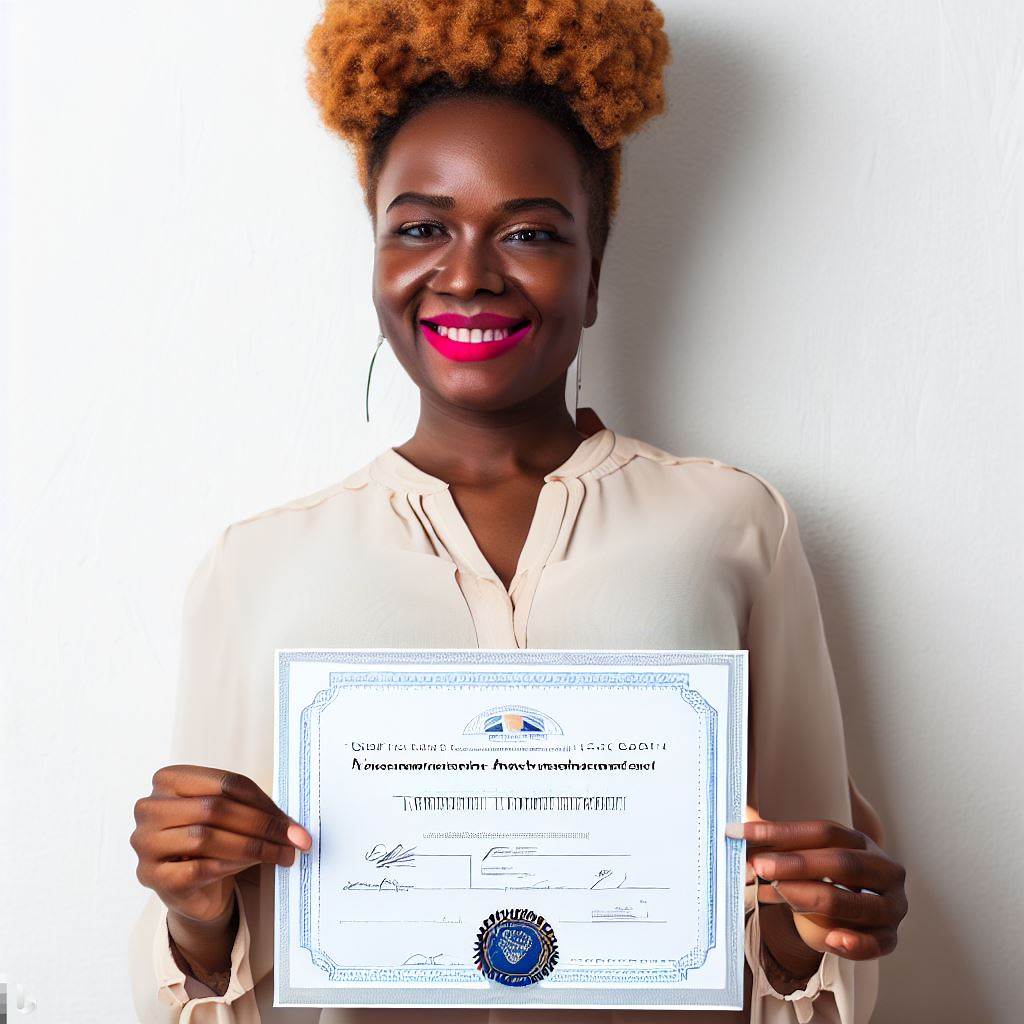Introduction
Ethics in the Illustrator Profession – a vital discourse, especially within the vibrant Nigerian creative landscape. Here, ethics matter immensely.
In Nigeria, the realm of illustration transcends mere visuals. It intertwines with culture, heritage, and storytelling. This unique fusion creates a distinct ethical dimension.
- Diverse Cultural Influence: Nigeria, a mosaic of cultures, imposes ethical considerations on illustrators. Respecting cultural nuances is paramount.
- Storytelling Ethics: Illustrations often narrate stories. Accuracy, cultural sensitivity, and truthfulness are ethical anchors in this narrative journey.
- Copyright and Plagiarism: Nigerian illustrators face copyright challenges. Ethics demand respect for intellectual property, ensuring fair compensation.
- Social Responsibility: Illustrations can shape public opinion. Ethical responsibility involves avoiding harmful stereotypes and promoting positive narratives.
- Representation Matters: The Nigerian perspective emphasizes diverse representation. Ethical illustrators ensure inclusivity in their works.
Understanding ethics in the illustrator profession from a Nigerian viewpoint is not just relevant; it’s indispensable.
Definition of Ethics
- Ethics is the moral principles and values that govern the behavior of individuals or groups.
- It is essential in professional fields as it establishes standards for professional conduct.
- Professional ethics ensure trust, integrity, and accountability in the illustrator profession.
- They guide the behavior and decision-making process of illustrators in their professional practice.
A. Importance of Ethics in Professional Fields
- Ethics set the standards for professional behavior, creating a sense of trust and credibility.
- They help maintain professional integrity and ensure fairness in dealing with clients and colleagues.
- Ethics promote a positive and respectful work environment, fostering collaboration and creativity.
- They contribute to the reputation and success of the illustrator profession as a whole.
B. How Ethics Guide Decision-Making and Behavior
- Ethics provide a framework for making ethical decisions by considering the impact on stakeholders.
- Illustrators should assess the ethical implications of their actions on clients, society, and themselves.
- They should prioritize honesty, transparency, and accountability in their professional conduct.
- Ethics assist illustrators in resolving ethical dilemmas and making principled choices.
- Illustrators should consider the potential consequences and risks of their decisions.
- They should act in the best interest of their clients, ensuring the quality and accuracy of their work.
- Ethics require illustrators to respect copyright laws and intellectual property rights.
- They should maintain confidentiality and protect sensitive information shared by clients.
- Ethics also include treating all individuals with dignity and respect, promoting diversity and inclusivity.
- Illustrators should refrain from engaging in fraudulent or deceptive practices.
C. Benefits of Upholding Ethics in the Illustrator Profession
- Upholding ethics in the illustrator profession cultivates a positive professional reputation and trust.
- Clients are more likely to choose ethical illustrators, knowing their work reflects integrity and professionalism.
- Illustrators who adhere to ethical guidelines experience enhanced job satisfaction and personal fulfillment.
- Ethics provide a competitive advantage in a saturated market, distinguishing ethical illustrators from others.
- Ethical behavior contributes to the growth and development of the illustrator profession in Nigeria.
Basically, ethics play a vital role in the illustrator profession in Nigeria and across the globe. It sets the standard for professional conduct, ensuring trust, integrity, and accountability.
Ethical decision-making and behavior guide illustrators in navigating ethical dilemmas and making principled choices.
Upholding ethics in the illustrator profession benefits both illustrators and their clients, fostering a positive and reputable industry.
Read: A Day in the Life of a Professional Illustrator in Nigeria
Ethics in the Illustrator Profession
The illustrator profession is not exempted from the ethical considerations that exist in other creative fields.
In Nigeria, these ethical considerations take on a unique perspective, influenced by the rich cultural diversity of the country.
This section will discuss the ethical considerations within the illustrator profession in Nigeria, and the impact of illustrators’ work on society and culture.
It will also highlight the responsibility of illustrators to accurately represent diverse communities in their illustrations.
A. Unique Ethical Considerations
The illustrator profession requires a deep understanding of ethical principles, as artists have the power to shape perceptions and influence society.
In Nigeria, illustrators face distinct ethical challenges due to the country’s historical and cultural context.
They need to understand and respect the sensitivities and beliefs of the Nigerian people.
1. Cultural Appropriation
Cultural appropriation is a significant ethical consideration for illustrators in Nigeria.
As Nigeria is home to various ethnic groups with diverse cultural practices, illustrators must be careful not to misrepresent or exploit these cultures for personal gain.
They need to respect the authenticity of traditional practices and accurately portray cultural elements in their illustrations.
2. Sensitivity to Religious Beliefs
Nigeria is a country with a significant religious divide between Islam and Christianity.
Illustrators must navigate this divide with sensitivity and avoid creating artwork that may offend or demean any religious group.
It is crucial for illustrators to understand the cultural and religious symbols associated with different faiths to ensure respectful representation.
3. Social Issues and Advocacy
Illustrators in Nigeria also play a vital role in reflecting and addressing social issues through their work.
They have a responsibility to shed light on important matters such as gender equality, human rights, and corruption.
Ethical illustrators use their artistic skills to raise awareness and advocate for positive change in society.
B. Impact on Society and Culture
Illustrators have a powerful impact on society and culture in Nigeria.
Their work influences public perception, shapes narratives, and contributes to the overall visual representation of the country.
1. Promoting Cultural Heritage
Illustrators have the opportunity to showcase and celebrate Nigeria’s diverse cultural heritage through their illustrations.
By accurately representing traditional clothing, dances, or festivals, illustrators contribute to the preservation and promotion of Nigerian culture.
2. Fostering National Identity
Illustrators also play a crucial role in fostering a sense of national identity.
Through their artwork, they can create visual representations that evoke pride and unity among Nigerians.
This promotes a shared understanding of Nigerian identity and contributes to the nation’s cultural cohesion.
3. Educating and Inspiring
Illustrators have the power to educate and inspire through their work.
They can visually communicate complex ideas and capture the essence of societal issues, making them more accessible and engaging to a wide audience.
By using their skills responsibly, illustrators can foster a more informed and empathetic society.
C. Accurate Representation of Diverse Communities
Illustrators have a responsibility to accurately represent the diverse communities within Nigeria.
By showcasing the various ethnicities, languages, and traditions, illustrators contribute to a more inclusive and representative visual landscape.
1. Avoiding Stereotypes
Illustrators should refrain from perpetuating stereotypes in their work.
Instead, they should strive for authenticity and capture the nuances of different communities.
This involves conducting research, collaborating with individuals from diverse backgrounds, and being open to feedback from the communities being represented.
2. Embracing Diversity and Inclusion
Illustrators should actively seek opportunities to showcase the beauty of Nigeria’s diversity.
By illustrating people from different backgrounds, abilities, and experiences, illustrators promote inclusion and challenge preconceived notions.
3. Ethical Collaborations
Illustrators can further enhance their ethical practices by engaging in collaborations that involve diverse voices.
By partnering with individuals from different backgrounds, illustrators ensure that their work benefits from diverse perspectives and experiences.
Ethics in the illustrator profession in Nigeria require a deep understanding of cultural sensitivity, responsible representation, and fostering social change.
By adhering to these ethical considerations, illustrators can have a positive impact on society, promote cultural heritage, and amplify diverse voices within Nigeria.
Read: Freelancing as an Illustrator in Nigeria: Pros and Cons
Challenges Faced by Nigerian Illustrators
Being an illustrator in Nigeria comes with its fair share of challenges, which can greatly impact the maintenance of ethical practices within the profession.
In this section, we will identify specific challenges faced by Nigerian illustrators, discuss the impact of limited resources and opportunities on ethical practices, and address societal and cultural factors that influence ethical decision-making.
1. Limited Access to Resources
- Nigerian illustrators often struggle with limited access to essential resources such as quality art supplies and software.
- This scarcity hampers their ability to produce high-quality illustrations and deliver projects within deadlines.
2. Lack of Professional Development Opportunities
- Nigeria’s illustration industry often lacks structured training programs and professional development opportunities.
- Illustrators face difficulties in upgrading their skills and staying updated with current trends and best practices.
3. Inadequate Copyright Protection
- Illustrators in Nigeria frequently struggle with copyright infringement issues due to weak legal frameworks.
- This makes it challenging to protect their original artwork and receive proper compensation for their work.
4. Financial Constraints
- Many Nigerian illustrators face financial constraints and struggle to earn a sustainable income from their profession.
- This can lead to compromises in ethical decision-making when taking on projects with questionable intentions or low pay.
5. Cultural and Societal Stereotypes
- Nigerian illustrators often encounter societal and cultural stereotypes that limit their creative freedom.
- These stereotypes can influence ethical decision-making, as illustrators may have to conform to social expectations.
6. Pressure from Clients and Deadlines
- Clients’ demands and tight deadlines can put immense pressure on Nigerian illustrators.
- This pressure may lead to ethical compromises, such as rushed work or plagiarism from available resources.
7. Lack of Industry Regulation
- Nigeria’s illustration profession lacks a regulatory body to monitor and enforce ethical standards.
- This absence of regulation makes it challenging to hold unethical illustrators accountable for their actions.
These challenges illustrate the complex reality faced by Nigerian illustrators and the impact they have on maintaining ethical practices within the profession.
It is important for the government, organizations, and professionals in the industry to address these challenges collectively to ensure a conducive environment for ethical illustrator practices in Nigeria.
Read: Earning Potential for Illustrators in Nigeria: A Study

Ethical Dilemmas
A. Common ethical dilemmas faced by illustrators in Nigeria
Illustrators in Nigeria often face ethical dilemmas that require careful decision-making. Here are some common dilemmas:
- Client Expectations vs. Personal Values: Illustrators may encounter situations where the client’s vision conflicts with their personal values. For example, a client may request a design that promotes harmful stereotypes.
- Intellectual Property: Illustrators often face dilemmas regarding copyright infringement and intellectual property rights. They must make decisions about using reference materials, avoiding plagiarism, and properly crediting other artists.
- Confidentiality: Illustrators sometimes deal with confidential information from clients that must be kept secret. Balancing the need for transparency with client trust can pose ethical challenges.
- Compensation: Negotiating fair compensation can be challenging for illustrators in Nigeria. Ethical dilemmas may arise when clients refuse to pay the agreed-upon amount or ask for additional work without compensation.
- Representation and Inclusivity: Illustrators face dilemmas when representing diverse identities and ensuring inclusivity in their work. They must be aware of cultural sensitivities and avoid perpetuating stereotypes.
B. Situations that require ethical decision-making
Let’s explore some real-life situations that require ethical decision-making for illustrators in Nigeria:
- An illustrator is commissioned to design a book cover, but the client insists on depicting racially offensive imagery. The illustrator must decide whether to comply or express their concern.
- An illustrator finds a stunning artwork on the internet and is tempted to copy elements or the entire piece. They face a dilemma concerning the ethical use of someone else’s work.
- A client shares confidential information about a project that would benefit the illustrator’s career if disclosed. The illustrator must choose between personal gain and maintaining client trust.
- An illustrator completes a project and sends an invoice for the agreed-upon amount, but the client refuses to pay the full sum. The illustrator must decide how to handle the situation professionally.
- In creating illustrations for an educational book, an illustrator must represent a range of multicultural characters accurately and respectfully, avoiding stereotypes.
C. Potential Consequences of Unethical Behavior
Engaging in unethical behavior can have severe consequences for illustrators in Nigeria:
- Damage to Reputation: If an illustrator is involved in unethical practices, their reputation may suffer, causing clients to lose trust and potential job opportunities.
- Legal Issues: Violating copyright laws or breaching confidentiality can lead to legal consequences, including lawsuits and financial penalties.
- Loss of Creative Integrity: Unethical behavior compromises an illustrator’s creative integrity and may impact their ability to produce authentic and meaningful artwork.
- Negative Impact on Society: If illustrators perpetuate harmful stereotypes or engage in unethical practices, they contribute to a negative impact on broader society.
- Professional and Emotional Stress: Making unethical decisions can lead to stress, guilt, and ethical dilemmas that take a toll on an illustrator’s well-being.
It is crucial for illustrators in Nigeria to remain vigilant about ethical decision-making to uphold their professional integrity and contribute positively to their industry and society.
Read: Top Illustrator Schools and Courses in Nigeria Revealed
Importance of Ethical Standards
A. Upholding ethical standards in the illustrator profession is of utmost importance
As illustrators, we have a responsibility to maintain high ethical standards in our work.
By adhering to ethical guidelines, we ensure the integrity and credibility of our profession.
It establishes trust between us and our clients, colleagues, and the wider audience.
Upholding ethical standards plays a crucial role in the overall growth and development of the illustrator profession.
B. Adhering to ethical practices can lead to positive outcomes in various ways
By maintaining ethical standards, we create an environment of professionalism and respect.
Clients are more likely to trust and value the work of ethical illustrators.
Ethical practices contribute to the overall quality and authenticity of our creations.
It fosters a positive reputation and sets a standard for others in the industry.
C. Unethical behavior can have detrimental effects on both personal and professional reputation.
Engaging in unethical practices tarnishes an illustrator’s integrity and can lead to a damaged reputation.
Clients may lose trust in an illustrator who engages in unethical behavior.
It can result in the loss of business opportunities and professional collaborations.
An illustrator’s personal and professional relationships may suffer due to unethical conduct.
Upholding ethical standards in the illustrator profession is crucial for its growth and reputation.
Adhering to ethical practices leads to positive outcomes and fosters trust among clients and colleagues.
Avoiding unethical behavior is essential to maintaining personal and professional integrity in the field of illustration.
As Nigerian illustrators, let us prioritize ethical standards to elevate our profession and contribute to its positive development.
Promoting Ethical Practices
A. Strategies for Nigerian Illustrators
- Focus on transparency and honesty in dealing with clients and fellow illustrators.
- Adhere to copyright laws and respect intellectual property rights.
- Avoid plagiarism and give proper credit to original creators.
- Engage in fair competition and avoid spreading false information about competitors.
- Communicate clear expectations and deliver on promises made to clients.
- Seek feedback from clients and colleagues to improve skills and maintain ethical practices.
- Stay updated with industry standards and follow ethical guidelines set by professional illustrators associations.
- Actively participate in discussions and seminars to contribute to the growth of ethical practices in the industry.
- Build a strong network of ethical illustrators and collaborate to create positive change in the profession.
- Educate clients and the general public about the importance of ethical practices in the illustrator profession.
B. Recommendations for Maintaining High Ethical Standards
- Avoid accepting projects or clients that compromise your ethical principles.
- Seek legal advice when faced with dilemmas related to copyright infringement or ethical concerns.
- Regularly review and update your code of ethics to align with evolving industry trends and challenges.
- Be responsible for your own actions and take ownership of any mistakes made.
- Promote ethical practices through social media platforms and educate others about their benefits.
- Form partnerships with organizations and institutions that promote and support ethical illustrator practices.
- Report unethical behavior within the profession to relevant authorities or professional organizations.
- Stay vigilant and encourage the reporting of unethical practices by others.
- Lead by example and be a role model for aspiring illustrators.
- Participate in mentorship programs to guide new illustrators on the importance of ethical practices.
C. The Importance of Continuous Professional Development and Learning
Continuous professional development is crucial for Nigerian illustrators to maintain high ethical standards and grow in their profession.
Here’s why:
- Keeps illustrators updated with the latest industry trends, techniques, and ethical guidelines.
- Enhances skills and knowledge, enabling illustrators to offer better services to clients.
- Provides opportunities for networking and collaboration with other professionals in the field.
- Helps illustrators adapt to market demands and stay competitive.
- Encourages critical thinking and problem-solving skills.
- Builds confidence and professionalism.
- Fosters creativity and innovation.
- Opens doors to new career opportunities and personal growth.
- Ensures illustrators stay relevant and valuable in a rapidly evolving industry.
- Contributes to the overall improvement and reputation of the illustrator profession in Nigeria.
In a nutshell, promoting ethical practices is essential for Nigerian illustrators to uphold professional integrity, protect intellectual property rights, and foster a positive working environment.
By implementing the suggested strategies and recommendations while continually seeking professional development opportunities, illustrators can contribute to the growth and success of the illustrator profession in Nigeria.
Conclusion
Ethics plays a pivotal role in the illustrator profession, especially from a Nigeria perspective.
We have discussed important points such as plagiarism, cultural sensitivity, and the power of illustration to promote positive change.
It is crucial for illustrators to uphold ethical standards to maintain their integrity and reputation.
Ethics in the illustrator profession from a Nigeria perspective is essential as it reflects our cultural values and traditions.
By considering cultural sensitivity and avoiding misrepresentation, illustrators can contribute to preserving our heritage and promoting local talent.
We encourage readers to prioritize ethics in their own illustration careers.
By making ethical choices, such as respecting copyright and diverse representations, illustrators can make a positive impact on society.
Complying with ethical standards also creates trust with clients and helps to build a strong professional network.
As the illustrator profession continues to evolve, it is crucial that we embrace ethics as an integral part of our work.
Let us all commit to being responsible, respectful, and ethical illustrators who use our creativity to inspire, educate and foster a better future for Nigeria and beyond.




